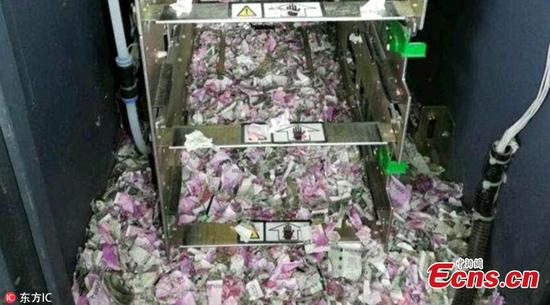
Pony.ai said they will provide a local autonomous driving taxi service in 2019. /CGTN Photo
Hopes are high for autonomous vehicles to be the next multi-billion-dollar business, especially in China.
In the Nansha District in China’s southern city Guangzhou, a fleet of autonomous cars have been running on open roads for?half a year.?
They belong to Pony.ai, a young self-driving startup founded a year and a half ago, but has already nearly reached an evaluation of one billion dollars.?
Pony.ai said they will be able to provide a local autonomous driving taxi service in 2019.?
The company is not alone. Now China’s most powerful Internet behemoths BAT (Baidu, Alibaba and Tencent) have all thrown themselves in the arena of self-driving cars, as have dozens of startups.
One of the reasons is that developing autonomous driving is easier than making a real traditional car. Zhang Ning, engineering director of Pony.ai Guangzhou, told CGTN, “Self-driving is a brand new area for all the players. Developing the traditional auto industry or computer chip industry needs lots of history accumulations. But, for self-driving, it doesn’t.”
Though the Chinese self-driving company is catching up fast, James Peng, the founder of Pony.ai points to a U.S. company being at the forefront, “I think Waymo is leading the pack. There are two reasons. One is that they started earlier. Another is that they really invested a lot in terms of capital and employees.”
Waymo is the former Google self-driving car project. Sebastian Thrun, founder of the project and Google’s pioneering research lab Google X, told CGTN, “the gap to Waymo is still there. But having been to China, I have to admit the driving situation in China is somewhat different. So, I think there is a unique opportunity in China that American companies cannot do.”
The opportunity Thrun mentioned is the huge masses of data generated by China’s 1.4 billion people.
With the world’s largest big data pool and affluent capital flowing into the industry, the best talent is now the deciding factor in the self-driving competition.
And now Chinese companies are fighting in Silicon Valley to attract the top-tier AI talent.
Two of Baidu’s vice presidents in charge of its AI development are all from the U.S.: Google Brain founder Andrew Ng – who quit in March 2017 – and Lu Qi from Microsoft who quit in May.
Pony.ai’s Silicon Valley Research Center just moved to a new office in Fremont, California that can accommodate over 200 employees. Its CEO Peng Jun told CGTN, “we go where talents are. Here in the Silicon Valley office, we have more senior and more experience engineers.”
In the field of self-driving from Baidu to young startups like Pony.ai and Drive.ai, it’s a new normal for them to operate both in China and in the U.S..
Though real talent is still hard to find. Research from a Canadian startup reveals that only 22,000 people around the world have the AI skills that most tech companies want.
In 2017, U.S. employers spent more than 650 million U.S. dollars on annual salaries for 10,000 jobs in AI , according to a study from career and hiring data firm Paysa. The top-level talent can make millions of dollars a year.?
Even newly minted PhDs in machine learning and data science can make more than 300,000 U.S. dollars a year.
Seeing the demand, Sebastian Thrun quit Google and founded Udacity five years ago.
It now provides the world’s most extensive?program to prepare for a career in self-driving cars. Udacity is offering courses working with big name Chinese and American companies,?such as Google and Baidu.
Thrun said, “this program now has over 40,000 enrollments in total.Udacity worked with Baidu, Didi, Alibaba and Tencent to develop local curriculum and also to place people in jobs in China.”
By Ge Yunfei
?


















































